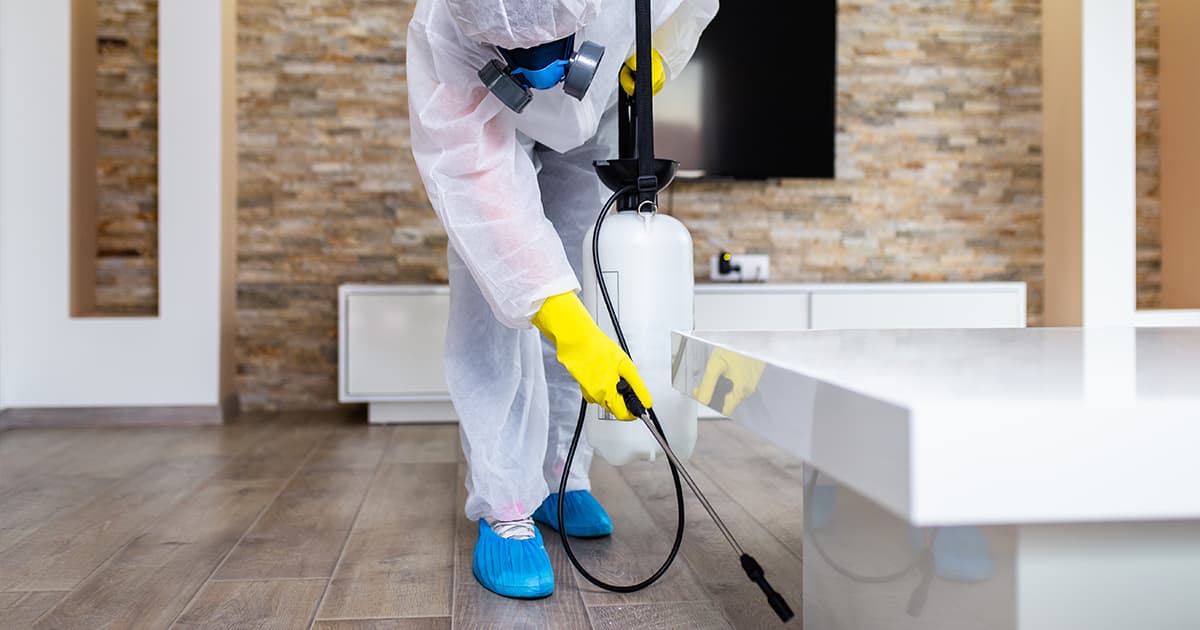Does My Home Insurance Cover Pest Control?

Home insurance is a lifesaver for homeowners when it comes to many unexpected circumstances. No one expects to have a pest problem in their home, so does home insurance cover pest control?
The answer is usually not because there are steps you can take to prevent them from getting out of control.
Can I make an insurance claim if my home has pests?
In general, home insurance does not cover damage from pests or pest control in Canada because pests are usually seen as a lack of maintenance by insurers. If pests are causing property damage that would otherwise be covered, for example, fire or water damage, this will not be covered by your home insurance policy either.
But if the pest damage is out of your control and can be defined as unexpected damage, your home insurance may cover it. For example, if a pest infestation happened as a result of a named peril in your insurance policy, such as a storm, there would be an investigation to determine whether it was preventable, and if it was not, you could expect the damage would be covered.
Your Western home insurance expert will answer any questions you may have about pest control and home insurance.
The 4 most common pests in Canadian homes
Homeowners may experience problems with several different types of pests, but four of the most common pests in Canada are rodents, cockroaches, bed bugs, and termites.
1. Mice and rats
Rodents seek shelter during winter and search for food year-round. They are a common household pest and can spread disease and cause property damage such as chewing through electrical wires.
2. Cockroaches
Cockroaches do not cause property damage but are an indicator of unsanitary living conditions, which can attract more pests. They can also contaminate food and trigger allergies.
3. Termites
When it comes to property damage, termites are some of the worst pests to encounter in your home. Prevention is crucial, so make sure to remove humidity and close gaps between the wood sections of your home and the soil.
4. Bed bugs
Bed bugs can be detrimental to your health and can go undetected. They can spread quickly, and it is important to act immediately.
Signs of pests
If you notice any of these signs of pests, call an exterminator immediately to prevent an infestation.
Droppings
Droppings can mean mice or cockroaches. The most common places to find droppings are cupboards, under appliances, and in dark, hidden parts of your home. Call an exterminator to deal with droppings or wear gloves and a mask to clean them up yourself.
Chewed wires
If you see items that have been chewed, it could mean there are rodents in your home. They chew on anything from wrappers to electrical wires and you should call an electrician if you see damage to electrical systems. Discard any contaminated food and store food in containers instead of leaving it out.
Dried blood spots
Dried blood spots in bed linens are a sign of bed bugs hiding in crevices in bedding and mattresses. Call an exterminator right away if you see this. Getting rid of bed bugs is complicated and can have several negative consequences, including on your health.
Egg casings and skin sheds
Cockroaches, beetles, and bed bugs molt and leave behind skin sheds, egg casings and wings. If you notice any of these, there are pests around and you may need an exterminator. Piles of wings are a sign of a termite infestation.
Plumbing issues
Leaky pipes can attract pests because they need water to survive, which is one of many reasons to address issues quickly.
Rotting wood
Rotting wood in humid areas of your home can be a sign of carpenter ants or termites. Inspect decks and fences and other exterior wood sections of your home and look for entry holes and tunnel systems.
Strange odors
Odd smells can mean pests. Mouse and rat urine smells like ammonia and cockroaches leave a “musty” smell. You may also notice stains from rodents rubbing their bellies along baseboards.
Nests in gutters
When debris collects in eavestroughs, insects and rodents can use it to make nests. This is not a major issue but can damage your gutters, so make sure to clean them out.
Tips for keeping pests out of your home
Keep pests out by not giving them reasons to move in.
- Remove humidity by fixing leaks and using a dehumidifier.
- Do not leave food out.
- Seal gaps and cracks.
- Consider having your home inspected by a pest control company once a year.



